Company Completes First Life Cycle Assessment for 6K Additive Process
The independent analysis shows 6K Additive’s UniMelt process uses 91% less energy with a 92% reduction in carbon emissions over traditional methods for nickel production.
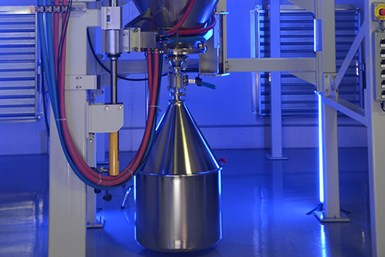
6K UniMelt process. Photo Credit: 6K Additive
6K Additive, a division of 6K, has received the results of an independent life cycle assessment (LCA) completed by Foresight Management, a sustainability and energy firm. The results show the company’s UniMelt process significantly reduces environmental impact in the key areas of energy usage and global warming, potentially helping 6K Additive customers lower their carbon footprint using metal additive manufacturing (AM).
According to the company, this is the first LCA of powder for AM ever completed. The LCA aimed to compare the quantifiable environmental impact between traditional metal powder production methods and 6K Additive’s UniMelt process.
“This assessment goes a long way in revealing how the UniMelt process exceeds traditional metal powder processing in environmentally important ways, while also pointing to the inefficiencies of atomization that currently plague AM material production,” says Frank Roberts, 6K Additive president. “Sustainability is at the core of who we are at 6K Additive and providing our customers with quantifiable numbers related to the environment helps them move closer to zero carbon manufacturing with AM.”
Foresight Management conducts life cycle assessments on products for companies to help them understand the impact their processes have on a global environmental scale. Its methodology includes primary and secondary data, as well as using professional GaBi software to provide data detailing environmental impact of sourcing, refining and processing.
“This is a cradle-to-end-user assessment of the UniMelt technology. We studied all known industrial processes from raw material acquisition and processing up through manufacturing and customer distribution,” says Brad Van Valkenburg, Foresight sustainability manager. “This assessment focused on nickel and titanium powders, both of which saw significant advantages when made using UniMelt process. The nickel results showed the UniMelt required 91% less energy and reduced carbon emissions by 92%, and the titanium results showed the UniMelt required, at minimum, 74% less energy and reduced carbon emissions by 78%.”
It is said organizations are starting to look to their suppliers to offer statistics that help them with their sustainability journey. Many companies are now asking for hard facts to back up sustainability claims and this study provides 6K Additive customers with valuable information to help them advance their AM manufacturing initiatives.
6K Additive says it is the world’s first producer of AM powder made from sustainable sources and its UniMelt system is the only microwave production-scale plasma with a highly uniform and precise plasma zone offering zero contamination. The company is capable of high-throughput production of advanced materials, including nickel 718/625, titanium64 grade 5/23, copper 18450/GRCop, stainless steel 316/17-4, refractories such as tungsten and tantalum.
Related Content
-
VulcanForms Is Forging a New Model for Large-Scale Production (and It's More Than 3D Printing)
The MIT spinout leverages proprietary high-power laser powder bed fusion alongside machining in the context of digitized, cost-effective and “maniacally focused” production.
-
3D Printing with Plastic Pellets – What You Need to Know
A few 3D printers today are capable of working directly with resin pellets for feedstock. That brings extreme flexibility in material options, but also requires greater knowledge of how to best process any given resin. Here’s how FGF machine maker JuggerBot 3D addresses both the printing technology and the process know-how.
-
DMG MORI: Build Plate “Pucks” Cut Postprocessing Time by 80%
For spinal implants and other small 3D printed parts made through laser powder bed fusion, separate clampable units resting within the build plate provide for easy transfer to a CNC lathe.



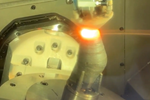
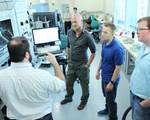
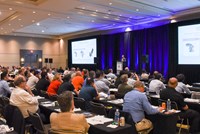

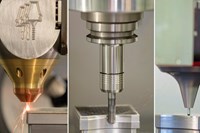


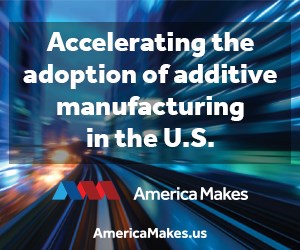
.png;maxWidth=300;quality=90)



